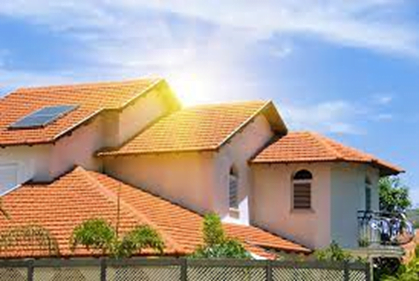By Admin
.30 Oct, 2024

Whether it’s the intense summer heat or seasonal storms, Texas roofs face various challenges throughout the year. Routine inspections can help homeowners and business owners stay ahead of roof damage, preserving their investment and ensuring safety. If you’re considering a roof inspection in Texas, here’s a helpful guide on what to include, questions to ask, and why it’s essential.
1. What to Include in a Roof Inspection?
A thorough roof inspection in Texas involves examining various aspects of the roof’s structure, materials, and surrounding components. Here’s what should be covered:
- Structural Integrity: An experienced roofing contractor in Texas will check for signs of sagging or unevenness, which could indicate weakened areas. This is particularly important for commercial roofing in Texas, where structural issues can impact a building’s overall safety.
- Roofing Materials: Inspectors look for missing, cracked, or deteriorating shingles or panels. For those with metal roofing in Texas, rust and loose fasteners are also checked. Damage to roofing materials is often the first sign that roof repair in Texas might be needed.
- Flashings and Seals: Flashings protect vulnerable areas like chimneys, skylights, and roof edges from water infiltration. Inspecting these is critical, especially in storm-prone areas, as weakened flashings are often the source of leaks.
- Interior Components: For a comprehensive inspection, professionals may also examine the attic or upper ceilings, looking for water stains, mold, or mildew that could indicate a leak. This step is key to spotting problems early and avoiding costly damage.

2. What to Check During Roof Leaks?
Roof leaks are one of the most common issues Texas homeowners faces, particularly after heavy rain or high winds. Here’s what a thorough leak inspection should entail:
- Inspecting the Roof Surface: A roofer in Texas will look closely at the roof’s surface, identifying any missing or loose shingles, cracked tiles, or worn-out areas. Shingle roofing companies in Texas often focus on the condition of each shingle to ensure there are no potential leak sources.
- Examining Flashings and Seals: Leaks often start around the roof’s edges or flashings. Inspectors make sure these components are intact, checking for cracks, gaps, or areas that need resealing to prevent water from seeping in.
- Identifying Water Stains: Inside the home, water stains on walls or ceilings are common indicators of a leak. An experienced roofing company in Texas will assess these areas to trace back to the source, preventing more extensive water damage.
- Assessing Attic Ventilation: Proper ventilation in the attic helps prevent moisture build-up, which can contribute to leaks. For homeowners with metal or shingle roofs in Texas, good ventilation can prolong the roof’s lifespan and prevent issues down the line.
3. What is the Duty of a Roof Inspector During a Roof Inspection?
A professional roofing inspector plays a crucial role in identifying issues early, ensuring the roof’s longevity, and protecting the home’s value. Their duties include:
- Evaluating Overall Roof Health: The inspector assesses the roof’s condition, determining if it needs roof damage repair in Texas, routine maintenance, or replacement. This includes a visual examination of the exterior, as well as any accessible interior areas.
- Guiding Homeowners on Necessary Repairs: After an inspection, the inspector provides recommendations for repairs. These might range from minor fixes to a full roof replacement in Texas if severe damage is found. Having an inspector who provides honest, detailed feedback is key.
- Documenting Findings: Many homeowners and business owners appreciate receiving a report after an inspection. This documentation often includes photos and a summary of issues, which can be helpful for insurance purposes or when seeking estimates from local roofing contractors in Texas.
4. Why is a Roof Inspection Needed?
A roof inspection is essential for every property owner in Texas. Here are several reasons why:
- Preventive Maintenance: Regular roof inspections allow you to catch small problems before they become major ones. Whether it’s a missing shingle or a loose panel, fixing issues early on saves you money and protects your property in the long term.
- Meeting Insurance Requirements: Many insurance providers in Texas require regular roof inspections to maintain coverage, especially for commercial roofing contractors in Texas. Inspections also make it easier to file claims in case of damage, as they establish the roof’s condition prior to any events.
- Weather Preparedness: Texas weather can be unpredictable. An inspection ensures that your roof is ready to withstand high winds, rain, and extreme temperatures, giving you peace of mind.
- Protecting Property Value: A well-maintained roof enhances a property’s value. Buyers in Texas often prioritize homes or commercial buildings that have documented inspections and up-to-date maintenance from reliable roof repair companies in Texas.

Choosing a Qualified Roofing Company in Texas
Not all roofing companies offer the same level of quality or reliability. When selecting an inspector, look for local roofing contractors in Texas who are experienced with both residential roofing in Texas and commercial projects. Ask if they handle emergencies, since Texas often needs emergency roof repairs after storms or unexpected leaks.
Additionally, check whether the company specializes in the type of roofing you have. For instance, metal roofing contractors in Texas and shingle roofing contractors in Texas may have expertise in specific repair techniques tailored to those materials.
In Conclusion: Protecting Your Roof and Your Investment
Your roof is an essential part of your property’s structure, protecting everything inside. Regular roof inspections in Texas help ensure that your roof remains in peak condition, minimizing costly repairs and extending its lifespan. By working with a reputable roofing contractor in Texas, you can stay ahead of potential issues, ensuring a secure and comfortable home or commercial space.